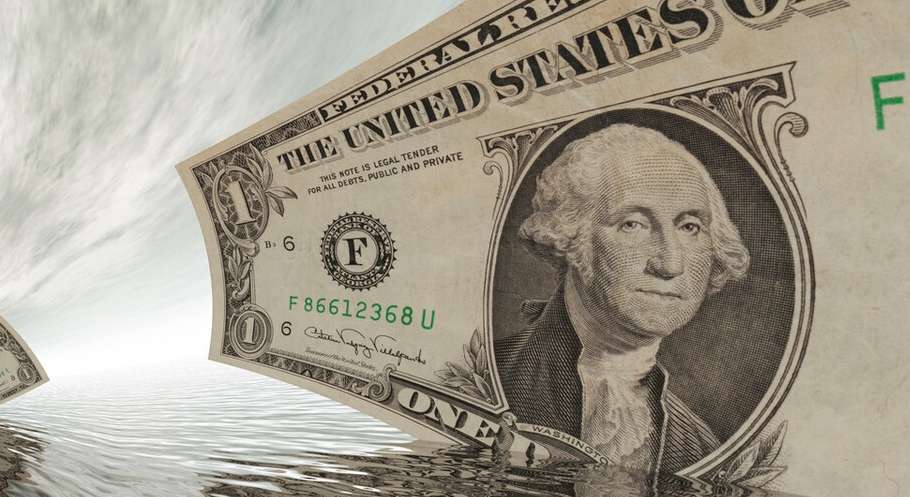The Resilience of the Strong Dollar
Advertisements
The trade policy known as "America First," instituted by the U.S. President, has revived discussions surrounding foreign exchange manipulation, particularly concerning the challenges posed by a strong U.S. dollar. Understanding the origins of the dollar's strength has garnered differing perspectives among economists and analysts alike. A recent report by UBS suggests that while the dollar maintains its status as the premier global reserve currency, this status is not the primary factor behind its sustained appreciation in recent years. Instead, UBS postulates that the dollar's strength can be largely attributed to relative economic performance, a phenomenon often referred to as “American exceptionalism.”
In the wake of fluctuations in technology stocks, discussions surrounding the drivers of American exceptionalism, and the sustainability of this status have intensified. Several key factors emerge from these discussions, highlighting the complex interplay of productivity, foreign investment, and economic trends.
To begin with, the concept of a "dollar supercycle" can be linked to surging productivity levels in the U.S. compared to those in the G10 nations. Since 2011, there has been an 11 percent increase in per capita GDP in the United States over the average of the other G10 countries. This stark contrast is reflective of various internal factors, including a boom in oil and natural gas production within the U.S., which has bolstered the economy. Interestingly, recent energy price shocks have favored the dollar, rather than hindered it.
Moreover, the differences in productivity growth rates find their roots mainly in the economic slowdowns occurring outside the U.S. This divergence has set the stage for a more robust performance of the dollar.
Another noteworthy point to consider is the dramatic increase in the number of U.S. stocks held by foreign investors compared to American bonds. This trend supports the notion that the dollar’s ascent is driven by solid economic fundamentals rather than merely the demand for it as a reserve currency. This perspective is increasingly gaining traction within financial circles.

In spite of the dollar's elevated valuation—a point accentuated by models like purchasing power parity that often overestimate its worth—UBS analysts argue that a lack of consideration for factors such as productivity and trade conditions may skew perceptions. Consequently, the dollar will likely weaken more from a reduction in American exceptionalism and foreign investors trimming their holdings in U.S. assets rather than from interventionist foreign exchange policies.
The solid support for a strong dollar is fundamentally anchored in economic realities. Although the current presidential administration has, for the most part, been reticent on the topic of the dollar, the recent call incorporated in the "America First" trade policy for the Treasury Department to address foreign exchange manipulation indicates that this silence may not endure indefinitely. During the President's first term, dissatisfaction with the robust dollar was linked prominently with efforts to mitigate America’s trade deficit. Presently, statistical measures such as the real effective exchange rate of the dollar (REER) stand about 11 percent higher than in January 2017, correlating with a widening current account deficit by approximately 1.6 percentage points.
A prevalent theory suggests that the dollar has long been overvalued, largely due to its role as the world’s reserve currency. If the global demand for U.S. Treasury bonds proves inelastic, this dynamic may hinder necessary downward adjustments of the dollar and obstruct reversals of the U.S.’s persistent current account deficit. The historical record shows that nations that produce reserve assets often face "punishment" for running current account deficits—raising concerns about capital inflows, thus prompting the conclusion that a lack of self-correcting mechanisms for a weaker dollar may necessitate interventionist policies, whether multilateral or unilateral, to offset America's competitive disadvantages.
One cannot overlook the distinct characteristics imparted to the dollar through its status as the world's primary reserve currency. A salient example of this phenomenon is what can be described as the "left tail of the dollar smile curve." When global risk sentiments sour, there is a marked influx of investors seeking safety in U.S. Treasury securities, resulting in an uplift in the dollar's value. Paradoxically, even as the United States itself may be the source of instability, this correlation remains evident; a recent episode during the March 2023 crisis in the regional banking sector illustrated this perfectly—investors flocked to the dollar amidst rising stock market volatility and fears of a looming financial crisis or recession, leading to a rebound in the real trade-weighted dollar index (USD TWI). This scenario reinforces the notion that the dollar's standing as a reserve currency can impede necessary downward adjustments that could economically benefit the U.S. at times when such shifts are warranted.
However, UBS assesses that attributing the dollar's recent prolonged strength primarily to its status as a reserve currency is a questionable assertion. Rather, they contend that the prevailing dollar supercycle—characterized by an extended period of strength—has been predominantly driven by fundamental economic tenets, particularly the noteworthy performance of U.S. GDP and productivity levels. Unless underlying U.S. economic growth fundamentals deteriorate as well, UBS remains skeptical regarding the necessity of intervention or whether such measures would substantially weaken the dollar. Given these insights, the implications and intertwined dynamics of currency valuation in relation to economic performance remain a subject of keen scrutiny, with the potential for significant repercussions on global markets as America navigates its current economic landscape.
Leave A Reply